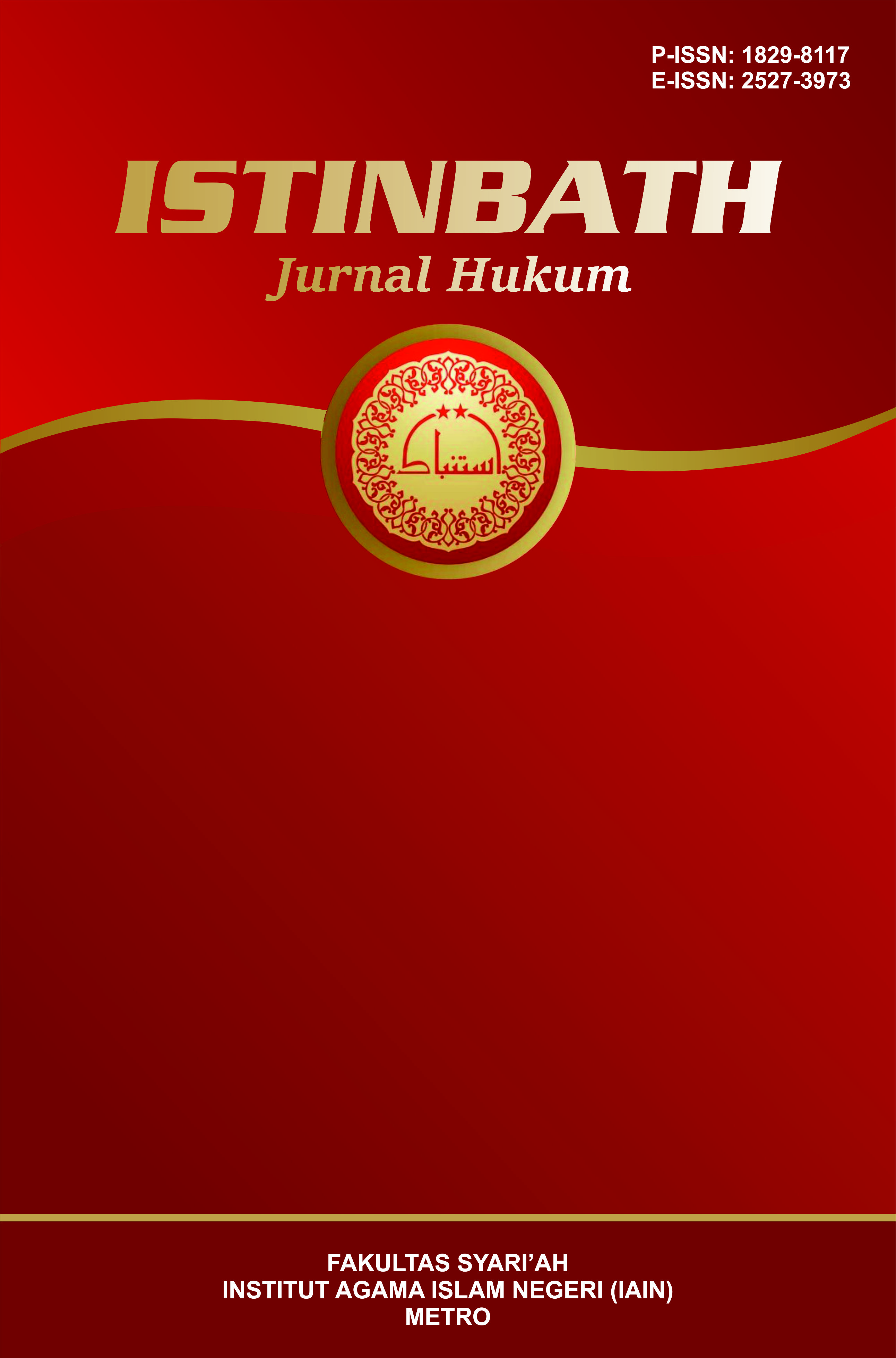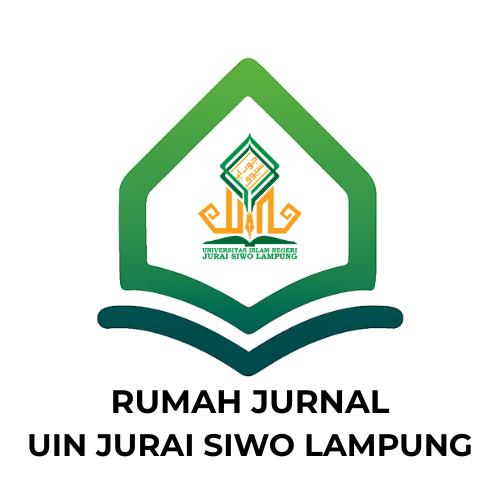Juridical Analysis of Inkracht Decision on Hadhanah Rights in Kepahiang Religious Court
DOI:
https://doi.org/10.32332/istinbath.v21i02.10364Keywords:
Hadhanah, Inkracht Decision, Legal Certainty, Religious CourtAbstract
This study aims to analyse the inkracht decision related to hadhanah rights at the Kepahiang Religious Court and assess the legal certainty provided in the case. The focus of this study is how judges consider aspects of Islamic law and positive law in deciding post-divorce hadhanah cases. The research method used is normative juridical research with a case study approach. Data was obtained through interviews with judges, review of court decision documents, and analysis of relevant laws and regulations. The results showed that the judge's decision in the case of hadhanah rights at the Kepahiang Religious Court emphasised the aspects of the benefit of the child, but there were still challenges in the implementation of the decision, especially regarding the implementation of the father's maintenance obligations. In addition, although Islamic law and positive law have clearly regulated hadhanah, social and economic factors often affect the effectiveness of the implementation of decisions in the community. The conclusion of this study is that although the hadhanah decision in the Kepahiang Religious Court has provided legal certainty for the disputing parties, its implementation still requires supervision and a stronger law enforcement mechanism so that children's rights are protected. Therefore, an active role is needed from the legal apparatus and related institutions in ensuring the implementation of fair and equitable decisions.
References
Andrea, Fahmi Tiara Rahma, and Zakiah Nurul Awaliyah. “Fulfillment of The Rights of Wife and Children Post Divorce.” MILRev : Metro Islamic Law Review 1, no. 2 (2022): 231. https://doi.org/10.32332/milrev.v1i2.6211.
Arief, Anggreany, and Azwad Rachmat Hambali. “Upaya Hukum Perlawanan Pihak Ketiga (Derden Verzet) Terhadap Putusan Hakim Yang Telah Berkekuatan Hukum Tetap (in Kracht Van Gewisjde).” Indonesian Journal of Legality of Law 6, no. 1 (2023): 07–12. https://doi.org/10.35965/ijlf.v6i1.3853.
Arifiani, Feni. “Ketahanan Keluarga Perspektif Maslahah Mursalah Dan Hukum Perkawinan Di Indonesia.” SALAM: Jurnal Sosial Dan Budaya Syar-I 8, no. 2 (2021): 533–54. https://doi.org/10.15408/sjsbs.v8i2.20213.
DJU BIRE, CHATRYEN M., and Melinda Ratu Radja. “Perlindungan Hak Perempuan Berdasarkan Convention on Elimination of All Forms of Discrimination Againts Women (Cedaw) Dalam Tradisi Kawin Tangkap Di Sumba.” Jurnal Hukum Samudra Keadilan 18, no. 1 (2023): 131–41. https://doi.org/10.33059/jhsk.v18i1.7473.
Dr.sakban Lubis, S.Hi. S.Pd.I, MA, M.Pd.I Muhammad Yunan Harahap, and M.Pd.I Dr. Rustam Ependi. Fiqih Munakahat, Hukum Pernikahan Dalam Islam. Edited by Efitra. Pertama. Jambi: PT. Sonpedia Publishing Indonesia, 2023.
Hafilah Ramadani. “PERTIMBANGAN HUKUM ISLAM DALAM MENETAPKAN HADHANAH ANAK PASCA PERCERAIAN PADA ORANG TUA BEDA AGAMA.” JURNAL AR-RISALAH 2, no. 1 (2022): 84–98.
Kemenag RI, Dirjen Bimas Islam. Kompilasi Hukum Islam Di Indonesia. Jakarta: Direktorat Bina KUA, 2018.
Mahkamah Agung Republik Indonesia. Kompilasi Hukum Ekonomi Syariah. Jakarta: Direktorat Jendral Badan Peradilan Agama, 2011.
Mahmudah, Husnatul, Juhriati Juhriati, and Zuhrah Zuhrah. “Hadhanah Anak Pasca Putusan Perceraian (Studi Komparatif Hukum Islam Dan Hukum Positif Indonesia).” SANGAJI: Jurnal Pemikiran Syariah Dan Hukum 2, no. 1 (2019): 57–88. https://doi.org/10.52266/sangaji.v2i1.263.
Maulana, Dudung. “Telaah Pasal 105 Kompilasi Hukum Islam Tentang Hadhanah.” Posita: Jurnal Hukum Keluarga Islam 1, no. 1 (2023): 1–9. https://doi.org/10.52029/pjhki.v1i01.133.
Puspitasari, Niken Sylvia, Muhammad Giri Herlambang, Alwan Abidin, and Riyanmar Fayat Zabihullah. “Tinjauan Yuridis Normatif Perlindungan Anak Dalam Perspektif Konsep Hadhanah Dan Undang-Undang Nomor 35 Tahun 2014.” BUSTANUL FUQAHA: Jurnal Bidang Hukum Islam 5, no. 2 (2024): 309–21. https://doi.org/10.36701/bustanul.v5i2.1377.PENDAHULUAN.
Putri, Nabila Hasna, Palmawati Tahir, and Muhamad Muslih. “Konsistensi Hukum Hadhanah Di Indonesia : Studi Yuridis Normatif Terhadap Putusan Pengadilan.” Hukum Keluarga Islam 1, no. 2 (2023): 117.
Suprayogi, Rizqi. “Reformasi Hukum Perkawinan Islam Di Indonesia.” Indonesia Journal of Business Law 2, no. 1 (2023): 29–37. https://doi.org/10.47709/ijbl.v2i1.1962.
Syahrain, Faridaziah. “PENETAPAN HAK ASUH ANAK DI BAWAH UMUR AKIBAT PERCERAIAN PERSPEKTIF HUKUM ISLAM.” Lex et Societatis 11, no. 1 (2017): 92–105.
Tarmizi, Yulia Pradiba, and Karmila Usman. “Hak Asuh Anak (Hadhanah) Pasca Perceraian Serta Akibat Hukumnya.” Jurnal Ilmu Hukum Pengayoman 1, no. 1 (2023): 1–15. https://journal.uniasman.ac.id/index.php/JIHP/article/view/38.
Downloads
Published
Issue
Section
License
Copyright (c) 2024 Sidiq Aulia

This work is licensed under a Creative Commons Attribution-ShareAlike 4.0 International License.













